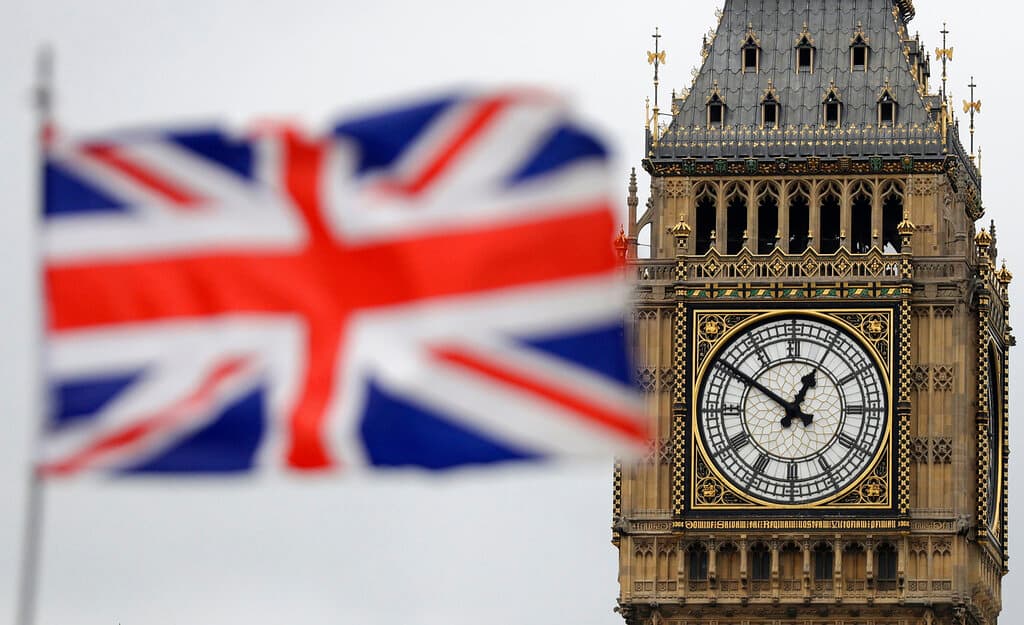Brexit at Seven: On Anniversary of Referendum, Success Depends on Pivoting Away From State Power
For the promise of the vote in 2016 to be fulfilled, a political ‘seven-year itch’ is required, our Brexit Diarist contends.

Seven years today, June 23, 2016 — marks the anniversary of the EU Referendum, on whether the United Kingdom would leave the European Union and regain its independence, once more.
Fifty-two percent voted to leave, with 48 percent opting to remain. Only Britons are still waiting for those fateful words, “and the rest is history.” For despite their heroic efforts in the face of political and social obfuscation, the EU spectre — in the form of unrepealed regulations, the Northern Ireland Protocol, and continuing Remainer petulance — still lingers.
Nevertheless, the referendum victory was a necessary first step, and surely reason enough for a celebratory cheer. Coincidentally, if you were wondering, the anniversary color is “onyx.” Rather fitting, considering.
Onyx can be described as contrasting two-toned marbling. And what better describes the fight for Brexit? Leave or Remain? UK independence or EU hegemony? Sovereignty or subservience?
Your Brexit Diarist can add another dichotomy, perhaps more pertinent now than ever. “Social power versus State power.”
Students of America’s “Old Right” will remember essayist Albert Jay Nock, who explored the theme in his theoretical work “Our Enemy, the State.” He wrote: “There is never, nor can there be, any strengthening of State power without a corresponding and roughly equivalent depletion of social power.”
Yet Benjamin Disraeli himself described the power divide nearly 100 years earlier. “It is an age of social disorganization, far more dangerous in its consequences, because far more extensive,” he wrote in his 1844 novel, “Coningsby.” “Rely upon it,” Disraeli warns, “that England should think more of the community and less of the government.”
The future premier took up the theme again the following year, this time with a darker, Hobbesian edge. “It is a community of purpose that constitutes society,” Dizzy discerned in “Sybil.” “Without that, men may be drawn into contiguity, but they still continue virtually isolated.”
Then echoing the theme of “Leviathan,” of atomized individuals ruled by an all-powerful State, Disraeli-the-novelist drew a caricature: “Modern society acknowledges no neighbor.”
Arguably the Brexit project of “maximal liberty and minimal government” is the foundational theme of the UK’s political history since the days of Magna Carta — that perennial question of politics: Who has sovereignty?
Sovereignty, for instance, and “Taking Back Control,” were central to the Leave campaign during the EU Referendum. Seven years ago, advocates for freedom like Boris Johnson called the vote the United Kingdom’s very own “Independence Day.”
Sovereignists (like me) were oft to quote Margaret Thatcher’s famous quip at her 1989 Bruges Speech. “We have not successfully rolled back the frontiers of the state in Britain,” the Iron Lady declared, “only to see them re-imposed at a European level with a European super-state exercising a new dominance from Brussels.”
Alas. Seven years on, Mrs. Thatcher’s declaration has been stood on its head. The “frontiers of Brussels have been rolled back” — with varying degrees of success — and “reimposed . . . exercising a new dominance,” this time from Westminster and worst still, from Whitehall.
For what strikes at the craw of Brexiteers is less that democratically elected politicians are self-aggrandizing. Theoretically, that is an occupational hazard that elections can remedy. But when unelected and well-nigh-irremovable bureaucrats presume to govern, what’s the cure?
For the ills endured by the UK since the Referendum can mainly be placed at the feet of recalcitrant politicians and the bureaucratic “Blob.” The cost-of-living crisis and spiraling energy bills are the results of failed policies devised by the State to deal with its overreach on Covid-19 and climate change.
Behind these lie the bien-pensants who brought Britain to the brink with quantitative easing, rising inflation, interest and tax rates, and a £2,567.2 billion debt that now surpasses GDP.
Added to which are burgeoning legal and illegal immigration, porous borders, institutional breakdown — whether in education, the armed services, or the National Health Service — and culture wars where the “woke” take aim at custom and tradition: all with resistance from, and often aided and abetted by, a feckless Conservative Government.
Brexiteers would seem to have little to celebrate. But has the worm turned? Signs are in the air that the great British public are stirring, beginning to slough off their complacency and propensity to tug their forelocks to a political class corrupted by power who have “by this breach of trust . . . forfeit[ed] the power the people had put into their hands.”
For the Brexit promise to be fulfilled, a political “seven-year itch” is required. That is, a realization that UK independence is too important to be left to the politicians and bureaucrats; that indeed, the political class will ultimately fail the people.
Success will be determined on whether the Brexit battle can pivot to the contest between “Social power” and “State power.” And as Disraeli advised, Britons defiant in defense of their natural liberties, “should think more of the community and less of the government.”

